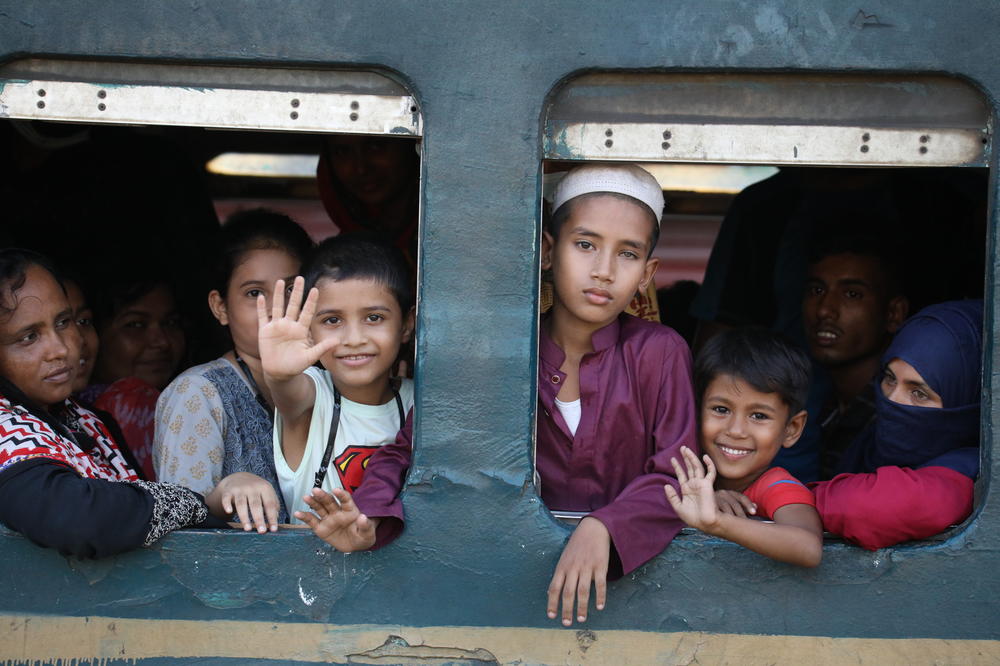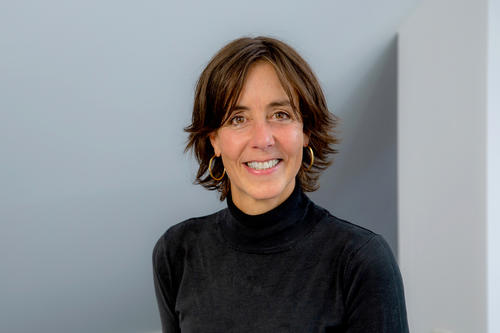Focus on Social Cohesion: Belief in the Universal Bond of Sharing
How do people in the Global South think about communal life? “Beyond Social Cohesion – Global Repertoires of Living Together,” a project funded through the Berlin University Alliance’s Grand Challenge, examines this question
Sep 27, 2022
Family ties: People crowd the train station in Dhaka, Bangladesh, ahead of Eid al-Adha celebrations, one of the most important Muslim holidays, to return to their home villages.
Image Credit: Picture Alliance
“As strange as it may seem, bodies of knowledge from the Global South are not totally foreign to people in Europe,” says Schirin Amir-Moazami, political scientist and professor for “Islam in Europe” at Freie Universität Berlin. This should come as no surprise seeing as Europeans reached almost every corner of the Earth through their colonialist pursuits; their norms continue to prevail in these regions.
That’s why the RePLITO research team wants to expand their scope as part of the “Beyond Social Cohesion – Global Repertoires of Living Together” (RePLITO) project. What do people in the Global South think about the word “community,” how do they experience it in their everyday lives, and how do they form relationships? Amir-Moazami and her colleagues from the humanities, social sciences, and area studies at Freie Universität Berlin and Humboldt-Universität zu Berlin are not just interested in how human beings share their living space, they are also interested in concepts of human cohabitation with animals and plants within ecosystems.
“Because we depend on nature, and its resources are not infinite, we have to ensure that coexistence is more equitable,” says Amir-Moazami. Climate and migration crises are showing that the Western industrial model of prosperity based on exploitation is reaching its limits.
"We are interested in concepts that emerge from societies themselves, that more or less come from the people."
Schirin Amir-Moazami is professor for “Islam in Europe” at the Institute of Islamic Studies.
Image Credit: Katy Otto
The Berlin University Alliance (BUA) has made the interdisciplinary, interuniversity “Global Repertoires of Living Together” project possible. The alliance supports research into global challenges, such as the topic of global health.
BUA’s Grand Challenge Initiative “Social Cohesion” has provided the funding framework for this project as it examines the preconditions, dynamics, and mechanisms of social cohesion. The broad scope of the funding means that Schirin Amir-Moazami and her colleagues have the intellectual space and freedom to expand their thinking on social cohesion beyond their initial ideas that focused on a European perspective. Amir-Moazami emphasizes how important it has been to open up the scope of her research: “In our research into the history of the term ‘social cohesion’ we found that it is quintessentially European and that it coincides historically with the development and crisis of the nation state. Nation states by their very definition always exclude certain groups of people. That is why we are also concentrating on the idea of ‘living together.’ We are interested in concepts that emerge from societies themselves, that more or less come from the people.”
These include concepts like ubuntu, a life philosophy originating in southern Africa based on ideas such as showing mutual respect and appreciation, valuing human dignity, and striving for a harmonious and peaceful coexistence, not to mention a universal bond of sharing that connects all humans with each other and their natural environment.
Just like the Grand Challenge “Social Cohesion” program itself, RePLITO is made up of different interlinked sub-projects. The transdisciplinary legal scholar, Juliana Moreira Streva, from Freie Universität Berlin is studying feminisms among Black women in Latin America in one such project. Moreira Streva is interested in how marginalized minorities challenge exclusion and racism. As a participant observer, she is studying acts of resistance that take the form of artistic production like poetry and film.
Like so many other researchers in the RePLITO team, Moreira Streva considers the participants in her research partners in the process of knowledge production, not mere objects of study. In practical terms, this means that she observes practices of coexistence on site, establishes relationships based on trust, lets the people at the center of the research tell their own stories, and works on questions together with them. Questionnaires used by social scientists are not just something they come up with as a theoretical thought experiment. They use them to delve into people’s experiences to gain real knowledge about social phenomena.
The RePLITO team of researchers has also adopted unorthodox and innovative modes of publication. For example, Moreira Streva has made a film about her findings and the knowledge she has gained so far. They are also planning on publishing their research via more conventional formats, such as anthologies. Research findings from RePLITO’s sub-projects should be available by the end of 2023.
This article originally appeared in German on September 26, 2022, in campus.leben, the online magazine of Freie Universität Berlin.
Further Information
Further information on Social Cohesion Week.


